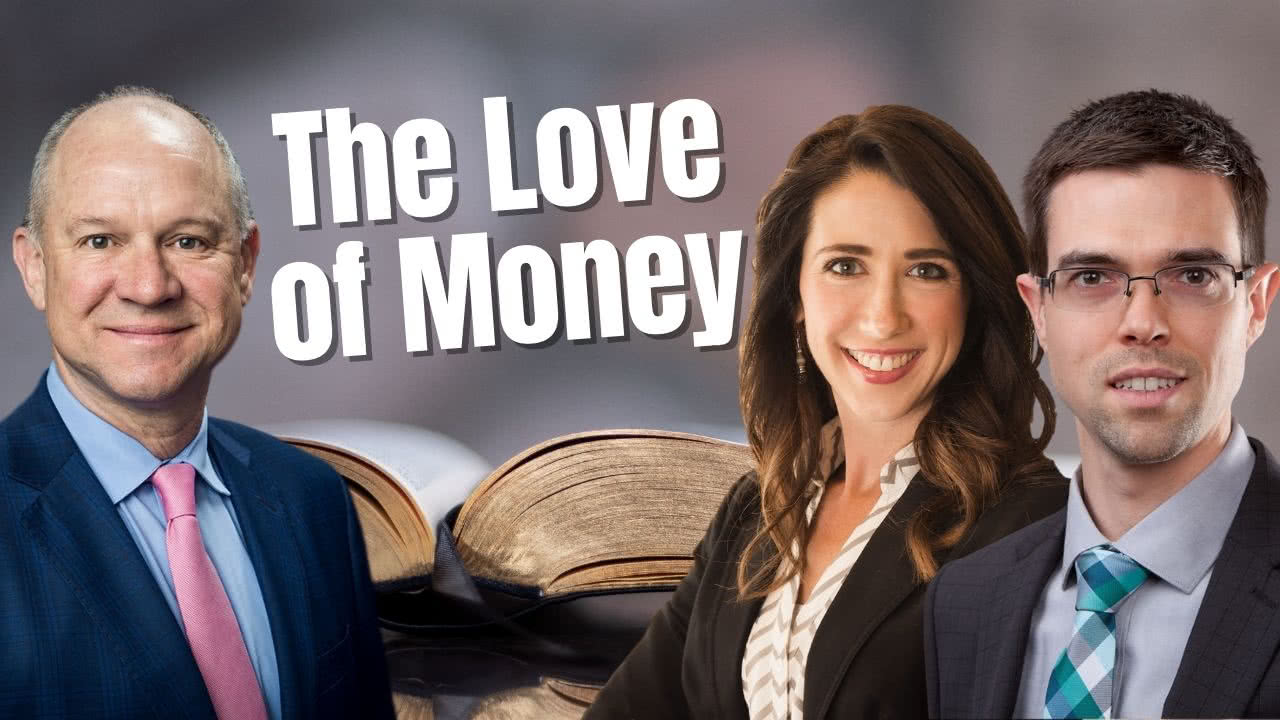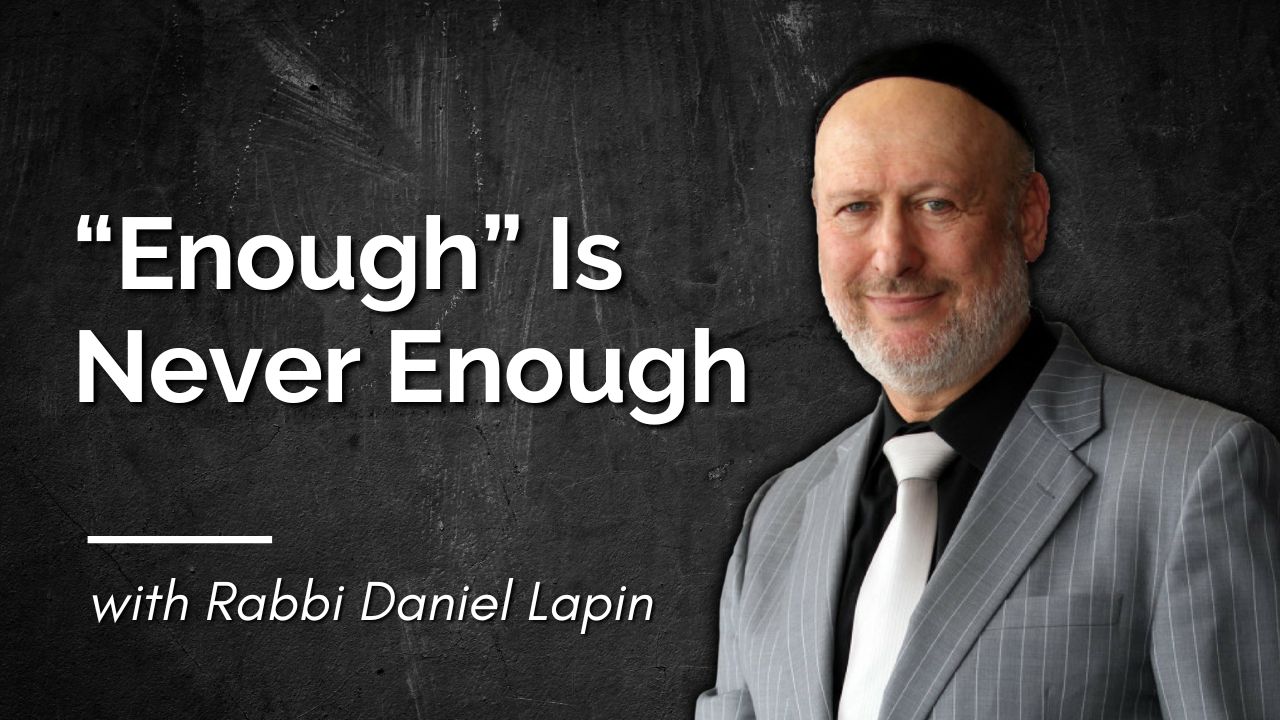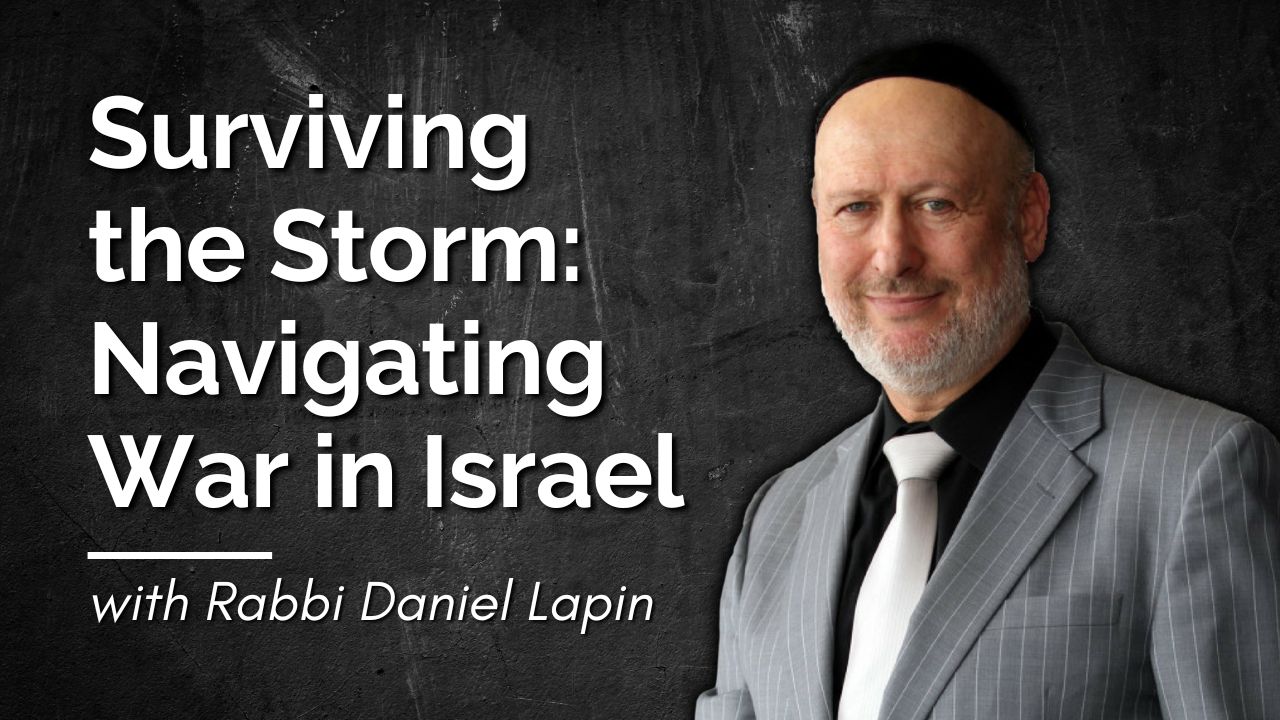
The Love of Money: Is it the Root of All Evil?
Many people believe that money is the root of all evil. But is money really evil? Is the love of money evil?
Today, we’re taking on a topic that creates so much confusion, tension, and challenge for people. We’re talking about money, the love of money, and the real root of all evil.
And we’re revealing how this one huge mistake in our thinking literally causes all the money problems we see in our own life and the world.
So if you want to dig deep into what the love of money is—and what it isn’t—so that you can flourish in the right relationship with people, yourself, and with God… tune in now!
Podcast: Play in new window | Download (Duration: 51:56 — 59.4MB)
Subscribe: Apple Podcasts | Spotify | Android | Pandora | RSS | More
Table of contents
What Does the Bible Say About the Love of Money?
Earlier this year, we had special guest Rabbi Daniel Lapin join us to talk about his book Thou Shall Prosper. We thought his biblical wisdom about money was so profound, and we actually had him join our show two more times this year. However, we also received many comments about biblical interpretation. We thought it would be a good idea to break down what we interpret in the Bible.
As we lay the groundwork for this discussion, we think it’s important to point out that English-speakers are reading a translation. We don’t have the benefit of reading the text in its original language. As such, there are many modern translations we can seek, with different interpretations. Then, on top of that, we have our own human interpretation of the texts we read.
The Money Advantage is not a ministry, but a business. As entrepreneurs, and particularly as ones in the financial, we talk about money. Wealth can be a taboo topic in many religious circles, and in an effort to talk about money from all angles, we want to touch on biblical wealth. Whatever you believe, we think this topic can help to assuage shame or guilt around money.
Understanding the Context of Money in the Bible
Many people draw their feelings and philosophy on money directly from the Bible. When you’re building and protecting your wealth, it’s important to have a solid understanding of things so that you can make the best decisions possible. Without it, you’re financially coasting.
We think this same logic can apply to your understanding of money in a biblical sense. If your entire philosophy of money is Biblically centered, it makes sense to dig deeper. The more you can understand the cultural context and original meaning of the text, the more concrete your understanding can be.
Is This “Prosperity Gospel”?
Prosperity Gospel is a term that often comes with negative connotations. Wikipedia defines this as:
A religious belief among some Protestant Christians that financial blessing and physical well-being are always the will of God for them, and that faith, positive speech, and donations to religious causes will increase one’s material wealth.
https://en.wikipedia.org/wiki/Prosperity_theology
This, however, is not the reason that we find value in looking at the Biblical context of money. We believe that wealth is something accessible to all and is directly proportional to the amount of value you provide others, and the number of people you provide value to. However, we live in a society that often vilifies wealth, which can cause negative feelings to fester within us all.
However, based on our own understanding of the Bible, we see that wealth is not “evil,” or something to be despised. This does not, however, mean that we advocate that the wealthy are favored by God more than others.
We are proponents of obtaining wealth through peaceful trade, and believe it’s noble to do so. We aren’t saying that God promises you wealth in the 20th century if you simply have faith—we believe that money is a tool, it’s amoral. It’s a magnifier of your soul–it will make you more of who you are.
Lucas Marshall – The Money Advantage CEO
The core of our belief is that each individual is talented and gifted in a unique way. When you can use those talents and gifts to create value for others, you can become wealthy–no guarantees.
Reconciling What We Know with What We Do
The bottom line: the Bible influences the way much of our country thinks about money. False interpretations can lead to shame, guilt, and internal conflict that hold people back from taking control of their money.
The belief that money is evil often exists simultaneously in our minds with a desire or drive to make more money. This incongruence can be damaging for many people. It causes many people to question what it says about them that they care about something that is “evil.”
Is Money the Root of All Evil?
Let’s consider different translations of a popular passage about money: I Timothy 6:9-10
New Living Translation
9 But people who long to be rich fall into temptation and are trapped by many foolish and harmful desires that plunge them into ruin and destruction. 10 For the love of money is the root of all kinds of evil. And some people, craving money, have wandered from the true faith and pierced themselves with many sorrows.
https://www.biblegateway.com/passage/?search=1+Timothy+6%3A9-10&version=NLT
The Message
9-10 But if it’s only money these leaders are after, they’ll self-destruct in no time. Lust for money brings trouble, and nothing but trouble. Going down that path, some lose their footing in the faith completely and live to regret it bitterly ever after.
https://www.biblegateway.com/passage/?search=1+Timothy+6%3A9-10&version=MSG
The Amplified Translation
9 But those who [are not financially ethical and] crave to get rich [with a compulsive, greedy longing for wealth] fall into temptation and a trap and into many foolish and harmful desires that plunge people into ruin and destruction [leading to personal misery]. 10 For the love of money [that is, the greedy desire for it and the willingness to gain it unethically] is a root of all sorts of evil, and some by longing for it have wandered away from the faith and pierced themselves [through and through] with many sorrows.
https://www.biblegateway.com/passage/?search=1+Timothy+6%3A9-10&version=AMP
The Love of Money

These translations have subtle differences, yet one thing is clear. It’s not money itself that is evil, it’s the love of money or the lust for it over all else. We interpret this that those who put money above all else, selfishly, can succumb to disaster. When money becomes more important than God and other people, it becomes a problem.
In the original Greek text, as the New Testament was originally written, “love of money” is a single word in Greek: Philarguria. The most accurate translation we have in English is “avarice,” which Merriam-Webster defines as “excessive or insatiable desire for wealth or gain.”
The deeper you study, the more you see these words come up: covetous, greedy, cruel, extortion, self-seeking, and unethical. In all senses, the flaw here is not money, but people who will do unethical things to obtain money.
Loving money properly translated results in either:
- covetousness: “ruthless self-seeking and an arrogant assumption that others and things exist for one’s own benefit.”
- avarice: “miserly and stinting, withholding and keeping such things as thou hast, without rightful need.”
Why “Loving Money” is Easy
[25:43] “It can feel that the answer to having everything that you want in life is more money. And it can feel that there’s never a point that you have enough…If you’re always seeking more money, the challenge can be that when you get the ‘more money,’ you still feel the emptiness. You still feel that somehow there’s still not enough.”
Many times, money can feel like the answer to all of our problems. We think money will bring more success, deeper relationships, more time…the list goes on. However, putting money above all can actually weed out the things we want to keep in our lives. In the end, if we’re not satisfied now with the things we DO have that make our lives richer, the pursuit of money will continue to lead to feelings of emptiness. And unfortunately, this persists unless we change our money mindset.
[28:00] “If we can figure out how to be content and at peace with exactly what we have, right now…then having more will feel good. But if ‘enough’ doesn’t satisfy, there’s no amount of money that will ever be enough.”
Furthermore, desiring money isn’t inherently wrong. It’s the unhealthy relationships with money that can corrupt. In other words, money before all else, including people, quality, and ethics.
Money is a Tool
Rather than seeing money as a cure, it’s wiser to view it as a tool. When we do good, honest work, in service of other people, money is often a natural result of that. Providing value and service to our fellow man can create wealth as a by-product. So it stands to reason that when we care for others and the work that we do for them, we create value for ourselves.
In this scenario, there’s love, not evil. And because you are putting people (and God) first, above money, you are not going down that self-destructive path. If you make more money, your soul is not inherently at risk. You won’t sabotage yourself for creating money as a result of helping others.
When you recognize your own value and the value of those that you serve, you will lift a lot of the limits you place on yourself about money and wealth.
[42:10] “The proper love of money, then, is the desire to expand your capacity and serve others at your highest potential by exchanging value with others through peaceful trade. And you do this by living in alignment with fundamental wealth principles, and principles are things that are timeless.”
Parting Thoughts About the Love of Money
We encourage you to do your own work and research so that you can come to find peace with this idea. It’s important that what you believe about money is not at war with your actions so that you can build true wealth and create true value.
We’ll leave you with the following quote from our friends, John and Missy Butcher.
“What if you had been taught that wealth and prosperity are literally what eliminate poverty and human suffering in this world, and that making money equals not some kind of a spiritual defect, but can actually be the highest form of contribution when you get it right? What if at an early age these concepts had been proven to you, not just taught theoretically, but actually proven to you in the real world, and you had been encouraged by everyone around you to develop and apply your unique talents to the creation of wealth, by creating immense value for the people around you?”
– John Butcher, Lifebook
Book A Strategy Call
Do you want to coordinate your finances so that everything works together to improve your life today, accelerate time and money freedom, and leave the greatest legacy? We can help! Book an Introductory Call with our team today https://themoneyadvantage.com/calendar/, and find out how Privatized Banking, alternative investments, or cash flow strategies can help you accomplish your goals better and faster. That being said, if you want to find out more about how Privatized Banking gives you the most safety, liquidity, and growth… plus boosts your investment returns, and guarantees a legacy, go to https://privatizedbankingsecrets.com/freeguide to learn more.
Why is Enough Never Enough, with Rabbi Daniel Lapin
Why is enough never enough? How do I know when you’ve made enough money, or when making money becomes too much of a concern, and you should be satisfied with what you’ve got? Joining us to discuss this abundance paradox is a long-time friend of The Money Advantage, Rabbi Daniel Lapin. Author of Thou Shall…
Read MoreSurviving the Storm: Navigating War in Israel with Rabbi Lapin
When war across the world could mean war close to home or a whole world war … when conflicts thousands of years old can’t be solved overnight … when truth seems defined by who’s in power … when totalitarianism seems stronger than freedom and free markets … when open borders looked like compassion but instead…
Read More


